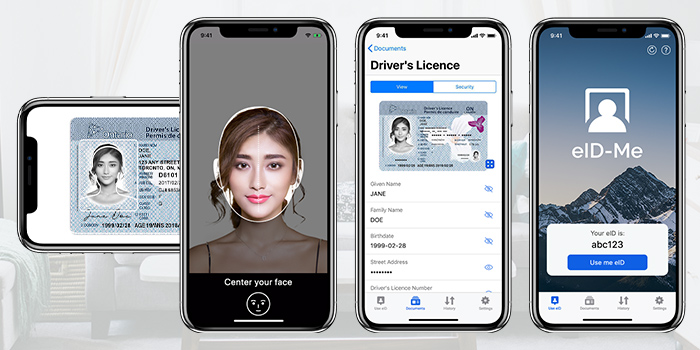The World Economic Forum (WEF) is actively promoting digital IDs. The Known Traveler Digital Identity (KTDI) is a WEF initiative that, according to its website, “brings together a global consortium of individuals, governments, authorities, and the travel industry to enhance security in world travel.”
As you can probably tell by the name of the initiative, digital IDs are a core component of the WEF’s desire to “enhance security.” Canada is KTDI’s most prominent member. Now, Canada, supposedly a country interested in advancing human rights, wants to introduce a federal Digital Identity Program.
According to a recent report released by the Canadian government, those in charge want “to make it easier for Canadians to interact with the Government of Canada.” For this to occur, though, “modern, integrated systems and an unwavering focus on the needs and experience of citizens” are required. In plain human language: This will require the introduction of digital IDs. The elites in Davos, one imagines, are excited by the developments in Canada.
Last year, in a rather revealing white paper, the WEF outlined the many ways in which digital IDs will turbocharge our digital future. The authors cite China’s use of digital IDs and biometric technologies; these, they insist, have “transformed consumer habits and delivered tangible benefits” to Chinese citizens. The fact that the WEF is using China as a shining example of why digital IDs work should worry anyone who cherishes the idea of freedom.
Should American citizens be concerned if Canada—the United States’ neighbor—is prepared to roll out digital IDs? The answer is yes. If it can happen in one of the most developed countries in the world, it can happen in the United States. In fact, some Democrats are actively pushing for digital IDs.
Why are a number of politicians on the left so interested in these problematic IDs? In short, they want to address identity fraud, a growing problem in the United States. In 2021, nearly 42 million Americans were victims of identity fraud. Tens of billions of dollars were lost to opportunistic fraudsters.
Now, only a fool would argue that identity fraud isn’t a problem in the United States; it is. Something must be done. However, we must ensure that the so-called cure isn’t worse than the disease.
You see, digital IDs are closely associated with social credit systems. When one reads the words “social credit system,” their mind automatically jumps to communist China, where 1.4 billion people are constantly monitored and graded. Those who fall short are banned from booking flights and enrolling their children in certain schools. They become prisoners, unable to relocate elsewhere, and unable to give their children a better life. Nothing good comes from a social credit system. People are forced to live in a constant state of fear, constantly checking their scores to see if they are considered “good” or “bad” by those in charge.
With Canadian authorities creating the infrastructure required to implement a digital identification network, some are concerned that a social credit system similar to the one in China is just around the corner. Their concerns are warranted. Digital IDs lay the path for social credit systems. If social credit systems are the main course, digital IDs are the starter. Without them, implementing a social credit system wouldn’t be possible.







